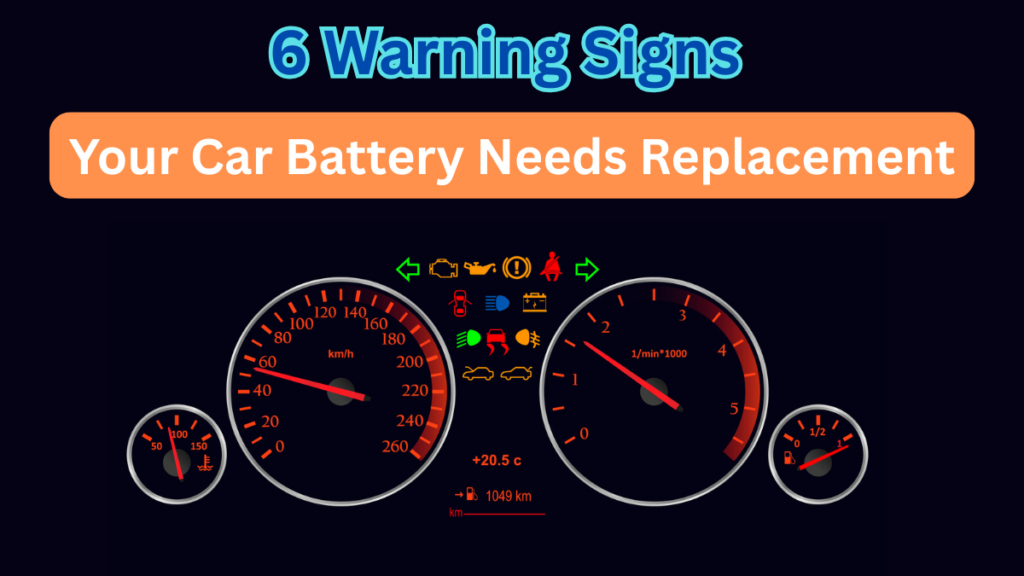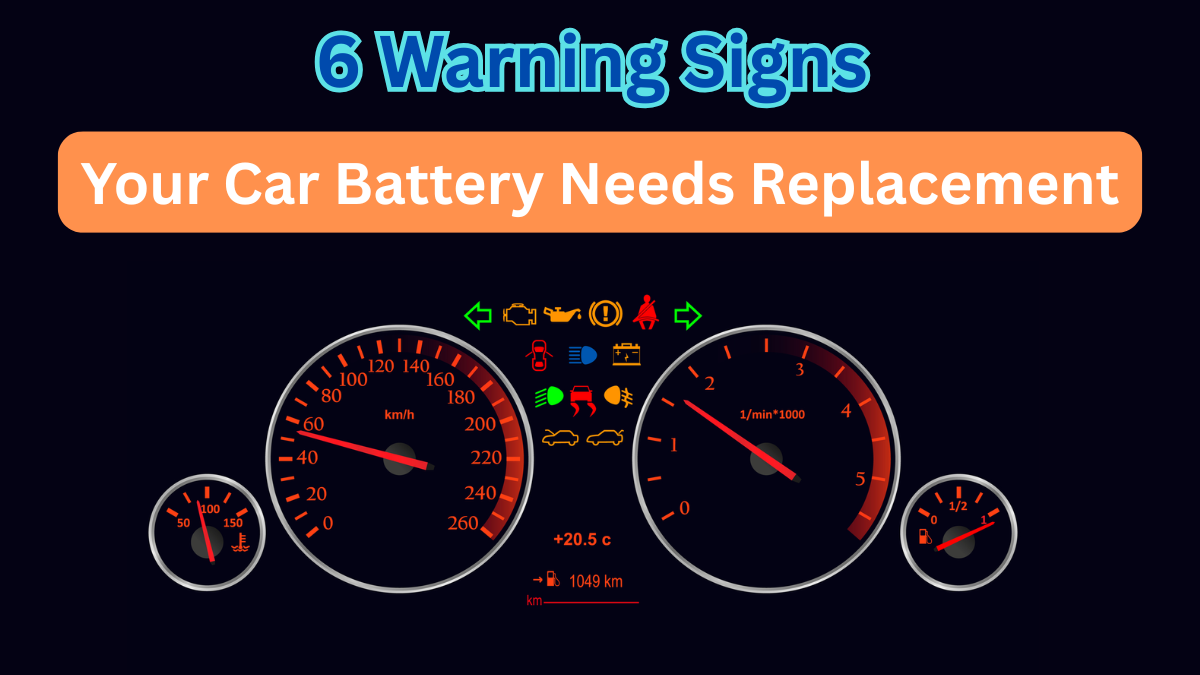Your car battery is like the heart of your vehicle — without it, everything comes to a halt. If you’ve ever turned the ignition and heard a sluggish crank or, worse, silence, you’ve probably experienced the frustration of a dying battery.
To save yourself from being stranded or paying for unexpected towing services, it’s crucial to recognize the signs your car battery is dying. Let’s explore the six red flags that mean your battery might be on its last leg — and what to do about it.

The Car Won’t Start or Cranks Slowly
One of the most obvious weak battery symptoms is difficulty starting your car. When you turn the key (or press the start button) and hear a slow cranking sound — or no sound at all — it’s a strong indicator your battery is fading.
Signs to look for:
-
Clicking sound instead of engine turnover
-
Delayed engine start
-
No interior or dashboard lights
Pro tip: If jump-starting gets your car going, your battery might need replacing soon.
Dim Headlights and Electrical Issues
A weak battery struggles to power your vehicle’s electronics. If your headlights are dimmer than usual or the infotainment system behaves erratically, your battery could be the culprit.
Other electrical issues may include:
-
Power windows moving slowly
-
Dashboard lights flickering
-
Radio or navigation glitches
Dashboard Battery Light is On
Your dashboard is your car’s way of sending you messages. If the battery-shaped warning light is glowing, don’t ignore it — it’s your vehicle crying out for attention.
Common reasons this light appears:
| Reason | What It Means |
|---|---|
| Battery is nearing end of life | Time for a check-up or replacement |
| Alternator issue | The battery isn’t charging properly |
| Corroded battery terminals | Poor electrical connection |
Swollen or Leaking Battery Case
Batteries don’t just die — sometimes they swell or leak, which is dangerous. High temperatures or overcharging can cause the casing to bloat, and acid leaks can corrode nearby components.
Inspect the battery for:
-
A bloated or warped shape
-
White or blue powdery buildup on terminals
-
Acid stains or foul rotten egg smell
Frequent Jump Starts
Needing to jump-start your vehicle more than once a week? That’s one of the clearest signs your car battery is dying.
Jump-starting repeatedly can indicate:
-
The battery no longer holds a charge
-
Alternator isn’t charging it effectively
-
It’s time to buy a new battery
Battery Age Over 3 Years
Car batteries don’t last forever. Most have a lifespan of 3 to 5 years, depending on usage, climate, and maintenance. If your battery is older than 3 years, it’s smart to get it tested regularly.
Quick age-check guide:
| Battery Age | Risk Level | Action to Take |
|---|---|---|
| Under 2 years | Low | Routine checks only |
| 3–4 years | Moderate | Consider replacing soon |
| 5+ years | High | Replace immediately |
Don’t Ignore the Signs
Recognizing these weak battery symptoms early can save you from bigger headaches down the road. A car won’t start scenario is often avoidable — if you know what to watch for. When in doubt, have a professional perform a battery load test to see if replacement is necessary.
FAQs
1. How long does a typical car battery last?
Most car batteries last between 3 to 5 years, but extreme weather and heavy electrical usage can shorten that lifespan.
2. What are early signs your car battery is dying?
Slow engine crank, dim headlights, electrical malfunctions, and frequent jump-starts are some of the first indicators.
3. Can a bad battery cause my car to stall while driving?
While rare, a severely weak battery may affect your alternator and overall power system, potentially leading to stalling.
4. Is it safe to drive with a weak battery?
You might get lucky a few times, but driving with a weak battery can leave you stranded unexpectedly. It’s better to replace it before that happens.
Click here to learn more
Sachin is a dedicated writer specializing in education, career, and recruitment topics, delivering clear and actionable insights to empower readers.
